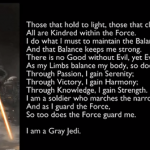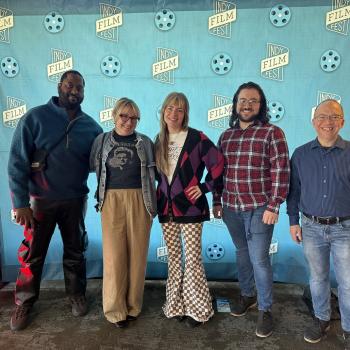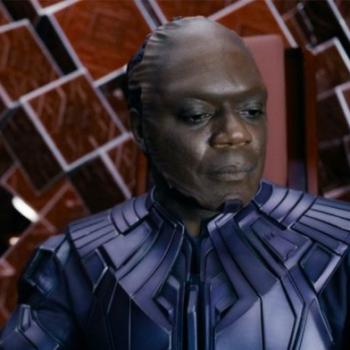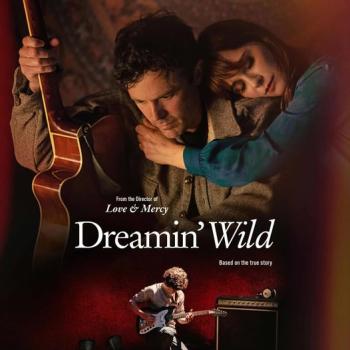I was delighted to have an opportunity to watch the upcoming movie Marshall in advance of its release. The movie is incredibly timely, given the upsurge in attention in recent years to racism as a continuing problem in our society.
The movie is about just one particular case that Thurgood Marshall tried while working for the NAACP, defending an African-American man accused of rape. He would later go on to become famous for his role in the case Brown vs. the Board of Education which led to the desegregation of public schools, and then for becoming the first black man to serve on the United States Supreme Court.
 Over the course of the movie, we get to learn a lot of details about Marshall’s life that enrich the viewer’s understanding of his life and vocational path. For instance, we find out that he sued the University of Maryland in their state supreme court after they did not accept him as a student because he was colored; that he went to school with Langston Hughes, and even though not a fan of his poetry (or perhaps poetry in general) they remained friends; that he and his wife tried for a long time to have children, and she suffered miscarriages, including one that happened during the course of the trial that is the movie’s focus.
Over the course of the movie, we get to learn a lot of details about Marshall’s life that enrich the viewer’s understanding of his life and vocational path. For instance, we find out that he sued the University of Maryland in their state supreme court after they did not accept him as a student because he was colored; that he went to school with Langston Hughes, and even though not a fan of his poetry (or perhaps poetry in general) they remained friends; that he and his wife tried for a long time to have children, and she suffered miscarriages, including one that happened during the course of the trial that is the movie’s focus.
That trial sees Marshall sent to represent a client in another state, Connecticut, which means that an attorney from within the state must request that he be admitted. Sam Friedman ends up making the request, but the judge who will try the case, while reluctantly admitting Marshall, prohibits him from speaking, requiring Friedman to argue it. Friedman is extremely unhappy with the situation, but Marshall quotes Exodus in his effort to persuade him: “The Lord commanded Moses to enlist his brother’s help…” Sam Friedman joins in finishing the words about Moses being as God and Aaron being his prophet, with their words becoming one, and thus is persuaded to try the case.
We catch glimpses of Friedman and his family attending synagogue, and thus of the Jewish community’s reactions both to the case and to Sam’s involvement with it. During the jury selection process, we also see the judge refuse to accept the dismissal of a man who says that he do does not like Hebrews any more than he likes colored people. During this process, we also get to see Marshall’s legal acumen, as he insists on keeping a proposed juror who is a southern woman that Friedman is convinced will be bigoted. Marshall recognized her as a woman who is smart, confident, and prepared to resist authority, and whose body language indicated her having a better impression of Friedman than of the prosecuting attorney and judge.
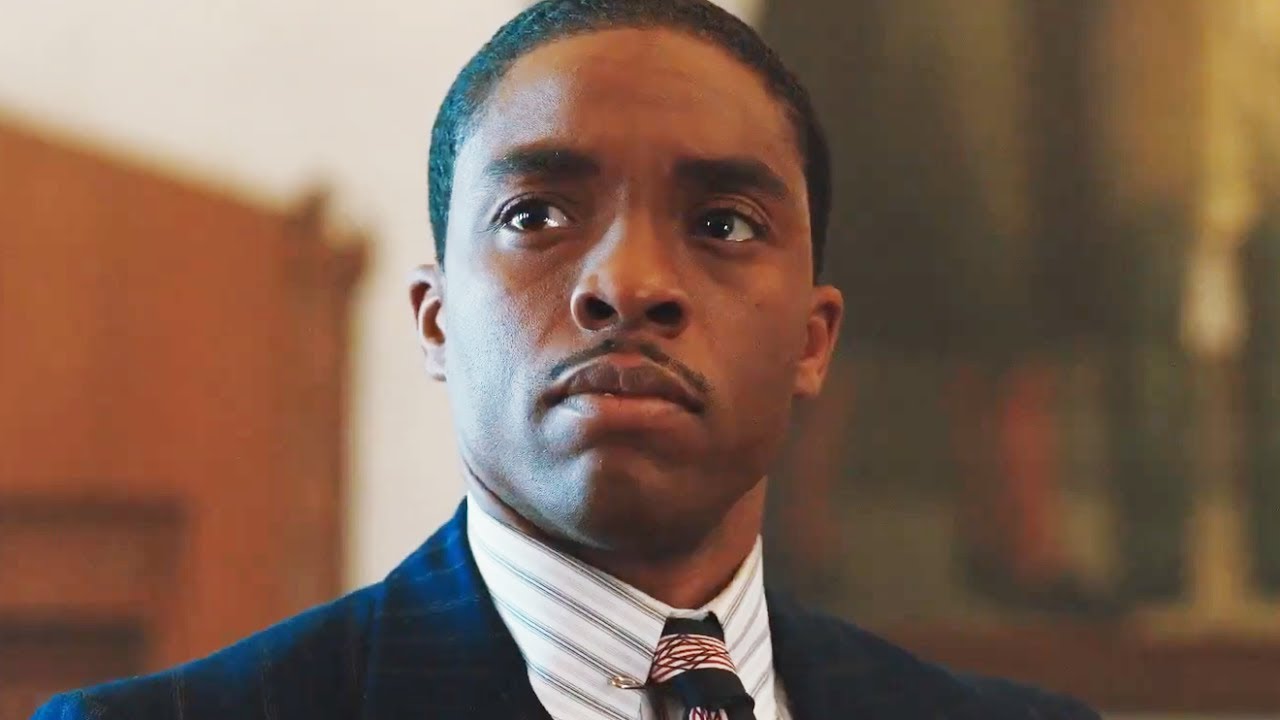 Marshall recognizes throughout the movie that this is not just an isolated case, about an accused man and his alleged victim. When he speaks to the press on the courthouse steps, he mentions Hitler. At another point he says that “the Constitution was not written for us, but we’re going to make it work for us.” The defendant shares that his parents were slaves, and in that context Marshall emphasizes the importance of not giving back freedom that has been fought for. Later in the movie he adds that “The only way to get through a bigot’s door is to break it down.” His approach is definitely one that seeks to go on the offensive with respect to claiming and fighting for rights, using violence if necessary, since violence is being used against them, as we see in attacks on not only Marshall but also Friedman, seeking to intimidate them. Marshall says that his father told him when he was younger that he not only had permission, but the responsibility, to fight anyone who called him the n-word. It was striking to watch that against the backdrop of recent events, in which even peaceful protests against racism are being criticized. The truth is that it should never be viewed as simply the responsibility of people of a particular gender, or skin color, or any other category to fight – whether violently or nonviolently – for their rights. Enslavement, segregation, and discrimination are institutions of those who hold the reigns of power, and it should be people who fall into the same category as those tho create these institutions who lead the charge against them. But when that fails to happen, we should most certainly not criticize the victims of such institutions for the form of protest they choose to adopt.
Marshall recognizes throughout the movie that this is not just an isolated case, about an accused man and his alleged victim. When he speaks to the press on the courthouse steps, he mentions Hitler. At another point he says that “the Constitution was not written for us, but we’re going to make it work for us.” The defendant shares that his parents were slaves, and in that context Marshall emphasizes the importance of not giving back freedom that has been fought for. Later in the movie he adds that “The only way to get through a bigot’s door is to break it down.” His approach is definitely one that seeks to go on the offensive with respect to claiming and fighting for rights, using violence if necessary, since violence is being used against them, as we see in attacks on not only Marshall but also Friedman, seeking to intimidate them. Marshall says that his father told him when he was younger that he not only had permission, but the responsibility, to fight anyone who called him the n-word. It was striking to watch that against the backdrop of recent events, in which even peaceful protests against racism are being criticized. The truth is that it should never be viewed as simply the responsibility of people of a particular gender, or skin color, or any other category to fight – whether violently or nonviolently – for their rights. Enslavement, segregation, and discrimination are institutions of those who hold the reigns of power, and it should be people who fall into the same category as those tho create these institutions who lead the charge against them. But when that fails to happen, we should most certainly not criticize the victims of such institutions for the form of protest they choose to adopt.
The movie is based on events that occurred in 1941. We had learned that Friedman’s parents had brought him to the United States from Minsk when he was 1 year old. His wife’s relatives are still in Krakow, and during the movie we learn that some of them – including the children – had been rounded up. The reference to Hitler (not by name) earlier in the movie was not a reference to past historical events, but what was going on at the time.
The movie focuses on a moment in history when a variety of forms of discrimination which in the past had been taken for granted are being challenged. We see examples of entrenched resistance and subtle changing of minds.
One of my favorite moments in the movie was when the prosecuting attorney says to Friedman, “I thought Jews were supposed to be smart, but you sound just like the negro,” and Friedman responds by thanking him for the compliment.
It is also a nice moment when the judge says, “Will the foreman please rise,” and the southern woman that Marshall was eager to see remain on the jury shows that he was right about her willingness not to be cowed by authority, as she says, “I am the forewoman, your honor.” She then voices their unanimous verdict: not guilty.
Towards the very end of the movie, as Marshall gets the news of the verdict by phone, having had to go south to handle another urgent case, he has a drink from a “Whites Only” fountain.
Marshall represents another example of a category of movie that we have seen more and more of in recent years, namely explorations of details of historical events that may themselves be well known or not, but the specifics of which have become hazy with the passing of time, and remain largely unknown to those who did not live through those times. That said, this movie would be a fantastic, powerful drama even if it stood alone as far as its genre is concerned, and it would be powerfully engaging as a narrative even if it were fictional. The fact that it is based on actual events, and appears at a moment when America’s legacy of racism is rearing its head once again, makes it something exceptional. I hope that the movie will be widely viewed and discussed!



